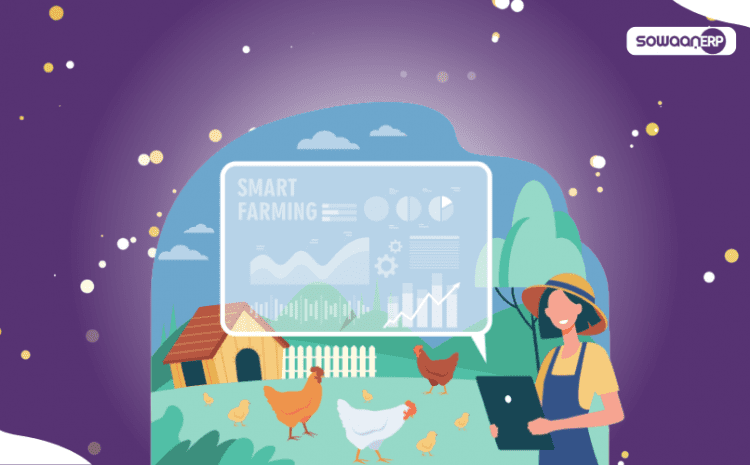
The agriculture industry has been revolutionized due to the introduction of ERP systems. These tools allow farmers and agricultural businesses to streamline operations, enhance data accuracy, and make better decisions. In this article, we’ll look at various components of an Agricultural Enterprise Resource Planning systems in Pakistan, their advantages, implementation challenges, features to look for when selecting one, popular systems, case studies, and what lies ahead for these systems.
What is an Agriculture ERP System?
An ERP system, “Enterprise Resource Planning,” is a software package that combines different company operations on a single platform. While choosing the ERP software companies in Pakistan for agriculture, it combines farming operations, logistics management, accounting and finance functions, administration of human resources, and relationship management for customers into one system. For instance, when agriculture ERP software solution in Pakistan, this system empowers farmers and agricultural businesses to maintain tasks, decide more effectively, and improve financial performance.
Components of Agriculture ERP System
The major components of the best ERP software for agriculture must include:
Farm management module
This module enables farmers to manage their farming operations more efficiently. It includes features such as crop planning, field mapping, irrigation management, livestock management, and equipment management. Hence, this module must have in your ERP for the agriculture industry in Pakistan for better business exposure.
Supply chain management module
This module enables farmers to manage their supply chain more efficiently. It includes features such as inventory management, procurement management, transportation management, and distribution management.
Finance and accounting module
This module enables farmers to manage their finances more efficiently. It includes features such as budgeting, accounting, billing, and invoicing.
Human resource management module
This module enables farmers to manage their human resources more efficiently. It includes features such as employee management, payroll management, and performance management.
Customer relationship management module
This module enables farmers to manage their customers more efficiently. It includes features such as customer profiling, order management, and complaint management.
How to select agriculture ERP?
When selecting an Agriculture ERP (Enterprise Resource Planning) system, it is important to look for features that cater to the specific needs of the agriculture industry. Here are some key features to look agriculture based ERP software in Pakistan:
Farm Management Module: The farm management module is the core component of an agriculture ERP system, which provides farmers with tools to manage their farming operations, including crop management, weather forecasting, land management, and labor management.
Supply Chain Management Module: The supply chain management module provides end-to-end visibility into the supply chain, including inventory management, procurement, logistics, and distribution.
Finance and Accounting Module: The finance and accounting module provides farmers with robust financial management capabilities, including accounting, invoicing, billing, and inventory valuation.
Human Resource Management Module: The human resource management module provides farmers with tools to manage their workforce, including payroll management, performance management, and training and development.
Customer Relationship Management Module: The customer relationship management module helps farmers manage customer interactions and relationships, including customer support, order management, and customer feedback.
Real-time Data Tracking and Analytics: The agriculture ERP system should provide real-time data tracking and analytics capabilities, enabling farmers to monitor and analyze crop performance, supply chain operations, financial performance, and customer interactions.
Mobile Access: The agriculture ERP system should be accessible from mobile devices, enabling farmers to manage their operations remotely and stay connected with their team.
Integration with IoT and Emerging Technologies: The agriculture ERP system should integrate with emerging technologies, such as the Internet of Things (IoT), precision agriculture, and data analytics, to enable farmers to optimize their operations and increase productivity.
Conclusion:
In nutshell, implementing an Agriculture ERP system can provide significant benefits to farmers and agricultural businesses, including improved operational efficiency, enhanced data accuracy, streamlined supply chain management, improved financial management, and better decision-making capabilities.
